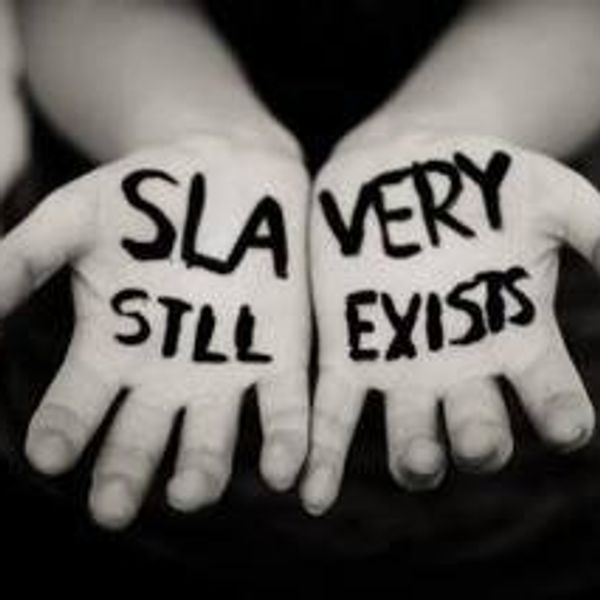The hopes I have to bear witness to the eradication of modern-day slavery in my lifetime fall flat at the sight of the dissemination of misinformation.
I thus hope to dispel some of the common myths which act as an impediment to this endeavor.
My previous article on trafficking myths concerned itself with debunking misconceptions on the nature of trafficking and what the malpractice entails; this article, however, hopes to invalidate common misunderstandings on the extent of trafficking, as this injustice tends to be more widespread, impacting and involving more demographics of people, countries and industries than commonly believed.
First of all, there are several misconceptions regarding the type of people who can fall prey to this exploitative practice. For example, it is commonly believed that trafficked persons can only be foreign nationals. This is false. The Trafficking Victims Protection Act (TVPA) of 2000 protects both US citizens and foreign nationals from trafficking, as this human rights violation can impact persons of all immigration statuses in the United States, whether they be lawful permanent residents, visa holders or undocumented. Fact is, victims of trafficking can be of any gender too. According to the United Nations Organization on Drugs and Crime (UNODC)’s 2014 Global Report on Trafficking in Persons, 65% of forced labor trafficking victims were male while 97% of sexual exploitation victims were female. Human trafficking unfortunately knows no age limits either. In 2011, 49% of victims were women and 21% were girls; contrary to mass expectation, 18% and 12% of trafficking victims that year alone were men and young boys, respectively.
Another myth concerning victims expresses that trafficked persons come from impoverished backgrounds or underdeveloped communities. While socioeconomic status may play a factor in trafficking vulnerability and susceptibility, poverty is not a causal factor or sole indicator for a victim, as victims come from a range of income levels, and poverty is only one of many other vulnerabilities (such as a lack of access to the criminal justice system, political instability, social exclusion due to gender or ethnic-based discrimination or an unstable legal status) which heighten one's susceptibility to a whole host of social injustices and malpractices beyond simply trafficking.
Misconceptions pertaining to the gender, demographics or backgrounds of traffickers also need clarification. First of all, while the 2014 UNODC report claims 72% of persons convicted of trafficking were male, nearly 30% of convicted traffickers were female. Females play a greater role in trafficking others than typically perceived, as victims can soon become trafficking perpetrators in order to break free from their own victimization. Contrary to popular understanding, traffickers come in a whole host of forms, from criminal operatives that work as lone individuals or as a part of a greater organized crime group, ranging from pimps to small families, businesses, factory owners, criminal networks and international syndicates. While traffickers can arise from any country, holding any ethnic background, most trafficking is carried out by people whose nationality is the same as that of the victims so as to ease the victimization process on behalf of the trafficker, easily preying on victims’ vulnerabilities. While there may be no consistent face to a trafficker, their common thread lies in their cruel and inhumane ability to prize profit over people.
A major piece of misinformation regarding the extent of trafficking would have you believe that trafficking does not occur in the United States. This is also untrue. The US State Department estimates that 14,500 to 17,500 foreign nationals are trafficked into the US every year, and the US Department of Labor has found that more than 77 percent of these victims are individuals of color, making this human rights issue all the more pressing an injustice in light of modern racial concerns. According to the president of the National Center for Missing and Exploited Children, anywhere from 100,000 to 300,000 children, as young as 12 years old, are exploited in the United States’ sex trafficking industry annually. In fact, trafficking is so prevalent in the US that the Super Bowl is known to antislavery activists as being the single largest trafficking incident in the country. Prior to the kickoff of this year’s Super Bowl held in California’s Levi’s Stadium, more than 30 arrests were made, leading to the discovery of over 40 potential sex trafficking victims, before the event even began.
This fact leads us to another essential point to underscore: trafficking occurs in California as well. According to a 2012 California Department of Justice report on Human Trafficking, from 2010 to 2012, Californian authorities identified over 1,200 trafficking victims, arresting nearly 1,800 perpetrators, with 56% of victims identified in 2012 alone falling subject to sex trafficking and the remainder to forced labor. The San Francisco Bay Area, San Diego and Los Angeles are responsible for almost 80% of all documented trafficking occurrences in California. California ranks fourth nationally in human trafficking activity, and sadly, the San Francisco Bay Area is one of the two primary trafficking hot spots in the not-so-golden (in this respect) state. As an antislavery advocate born and raised in the Bay Area, these are among the most striking, incomprehensible and disturbing facts regarding trafficking.
A great misunderstanding of this human rights issue holds that trafficking only occurs in illegal or underground industries which is an undoubtedly falsified claim. In reality, trafficking can occur in legitimate business settings as well. Labor trafficking is often reported with victims appearing to work as nannies, maids, or housekeepers, while other types of businesses, including nail salons, restaurants, hotels, bars, construction sites, factories and agricultural fields, effectively blur the lines between crime and legality, casting away doubts of potential worker victimization from the public eye.
In short, human trafficking usurps more people as victims, involving more traffickers and impacting more countries and industries than typically expected. Mass discovery of the true reality and extent of this human rights issue is a crucial step to finally making modern-day slavery a practice that can no longer be ignored.





















